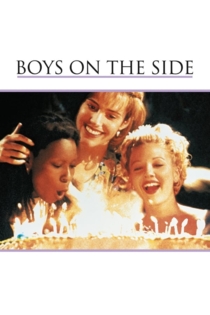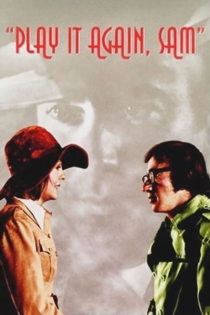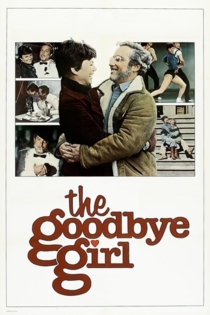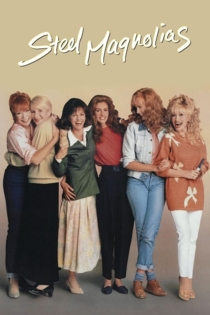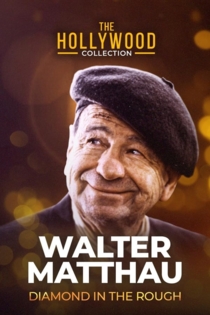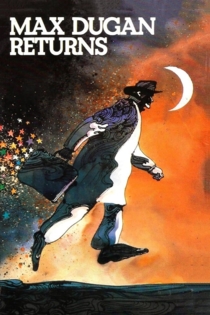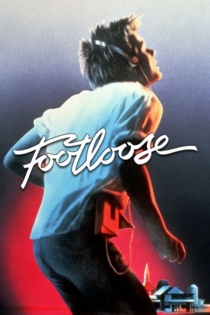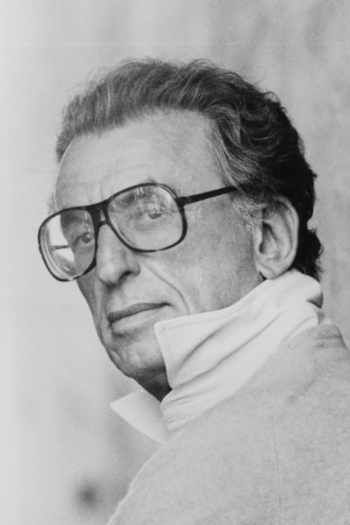
Herbert Ross
1927 - 2001Ross was born on May 13, 1927 in Brooklyn, New York, the son of Martha Grundfast and Louis Chester Ross, a postal clerk. At the age of 9, his mother died and his father moved the family to Miami and opened a luncheonette.
In 1942, Ross' stage debut came as "Third Witch" in a touring company of Macbeth. The next year brought his first Broadway performance credits with Something for the Boys. By 1950, he was a choreographer with the American Ballet Theatre and choreographed his first Broadway production, the Arthur Schwartz-Dorothy Fields musical adaptation of A Tree Grows in Brooklyn.
Ross's first film assignment came as an uncredited choreographer on Carmen Jones (1954). In the UK, he choreographed The Young Ones (1961) and Summer Holiday (1963), both starring Cliff Richard. Later, he worked with Barbra Streisand as choreographer and director of musical numbers for Funny Girl (1968).
His film directorial debut came with the musical version of Goodbye, Mr. Chips (1969), made by MGM-British, with Peter O'Toole and Petula Clark. He went on to direct films involving ballet, such as The Turning Point (1977), Nijinsky (1980) and Dancers (1987). Other movies of critical acclaim followed in the 1970s and 1980s such as Neil Simon's adaptations of his own plays and film adaptations of Broadway productions through his last project, Boys on the Side (1995).
Wonderful Town
Mel Ferber, Herbert Ross
Rosalind Russell, Sydney Chaplin
Ruth Sherwood and her sister, Eileen, have moved to 1935 Greenwich Village. They're surrounded by colorful Village characters (including an out-of-work football player known as the Wreck, and Mr. Appopolous, a modern painter and their landlord) and embark on various New York adventures. Ruth, who's trying to make it as a writer, meets up with a sleazy newspaper writer named Chick and a kindly editor named Bob, both of whom take an interest in both her career and her.
Wonderful Town
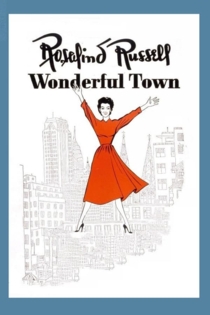
Follies: In Concert
Michael Houldey
Andre Gregory, Stephen Sondheim
A backstage documentary film including footage from the legendary 1985 concert performance of Stephen Sondheim's classic musical at Lincoln Center's Avery Fisher Hall. The plot of the musical centers around a reunion of showgirls who appeared in an annual Follies extravaganza when it was staged between the wars.
Follies: In Concert
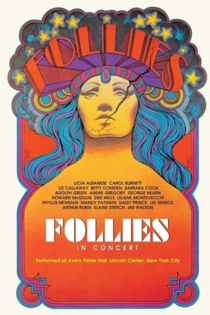
Shirley Maclaine: Kicking Up Her Heels
Gene Feldman, Suzette Winter
Shirley MacLaine, Jack Nicholson
Shirley MacLaine was the product of a strict middle-class background from which she and her brother, the future actor Warren Beatty, escaped into the fantasy world of show-biz. Her ballet training and her long-legged pixie charm led to rapid success on Broadway in musical comedy. Inevitably, Hollywood called and by 1955 Shirley was cast in Hitchcocks The Trouble With Harry. It wasn't too long before the fine dramatic roles also came to her opposite the most popular leading men of the time, like Fred MacMurray, Jack Lemmon, Frank Sinatra, Clint Eastwood and Robert Mitchum. It was apparent that this once perky gypsy of Broadway would leave her mark as one of the finest actresses of her day, an Academy-Award winner, who is ready and able to tackle any role that seems equal to her intelligence and talent. Her widely varied interests encompass the political, the literary and the mystical.
Shirley Maclaine: Kicking Up Her Heels
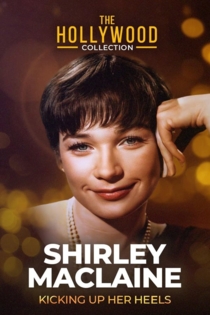
The Last of Sheila
Herbert Ross
Richard Benjamin, Dyan Cannon
A year after Sheila is killed in a hit-and-run, her multimillionaire husband invites a group of friends to spend a week on his yacht playing a scavenger hunt-style mystery game — but the game turns out to be all too real and all too deadly.
The Last of Sheila

And the Oscar Goes To...
Jeffrey Friedman, Rob Epstein
Anjelica Huston, Annette Bening
The story of the gold-plated statuette that became the film industry's most coveted prize, AND THE OSCAR GOES TO... traces the history of the Academy itself, which began in 1927 when Louis B. Mayer, then head of MGM, led other prominent members of the industry in forming this professional honorary organization. Two years later the Academy began bestowing awards, which were nicknamed "Oscar," and quickly came to represent the pinnacle of cinematic achievement.
And the Oscar Goes To...
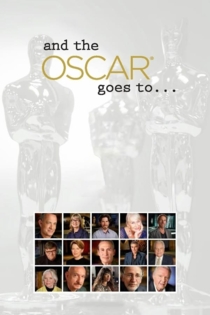
The Sunshine Boys
Herbert Ross
Walter Matthau, George Burns
Lewis and Clark, aka The Sunshine Boys, were famous comedians during the vaudeville era, but off-stage they couldn't stand each other and haven't spoken in over 20 years of retirement. Willy Clark's nephew is the producer of a TV variety show that wants to feature a reunion of this classic duo. It is up to him to try to get the Sunshine Boys back together again.
The Sunshine Boys
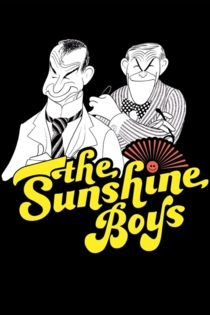
The Turning Point
Herbert Ross
Anne Bancroft, Shirley MacLaine
As young dancers, they were best friends and fierce rivals. Deedee left the stage for marriage and motherhood, while Emma would become an international ballet icon. But when Deedee's teenage daughter is invited to join Emma's dance company and begins an affair with a young Russian star, the two women are forced to confront the choices they've made, the resentments they've hidden and the emotional truths they must face at the turning point.
The Turning Point
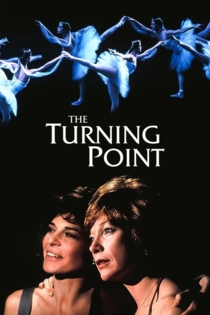
Goodbye, Mr. Chips
Herbert Ross
Peter O'Toole, Petula Clark
Academy Award-honoree Peter O'Toole stars in this musical classic about a prim English schoolmaster who learns to show his compassion through the help of an outgoing showgirl. O'Toole, who received his fourth Oscar-nomination for this performance, is joined by '60s pop star Petula Clark and fellow Oscar-nominee Michael Redgrave.
Goodbye, Mr. Chips
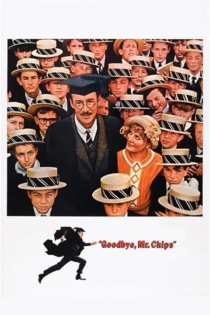
The Seven-Per-Cent Solution
Herbert Ross
Alan Arkin, Vanessa Redgrave
Concerned about his friend's cocaine use, Dr. Watson tricks Sherlock Holmes into travelling to Vienna, where Holmes enters the care of Sigmund Freud. Freud attempts to solve the mysteries of Holmes' subconscious, while Holmes devotes himself to solving a mystery involving the kidnapping of Lola Deveraux.
The Seven-Per-Cent Solution
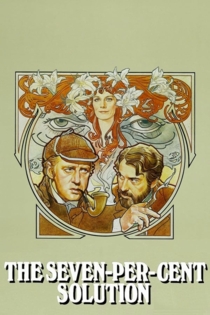
Boys on the Side
Herbert Ross
Whoopi Goldberg, Mary-Louise Parker
After breaking up with her girlfriend, a nightclub singer, Jane, answers a personal ad from Robin, a real estate agent with AIDS, seeking a cross-country travel partner. On their journey from New York City to Los Angeles, the two stop by Pittsburgh to pick up Jane's friend Holly, who is trying to escape an abusive relationship. With three distinct personalities, the women must overcome their differences to help one another.
Boys on the Side
